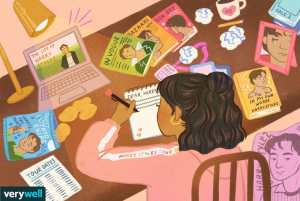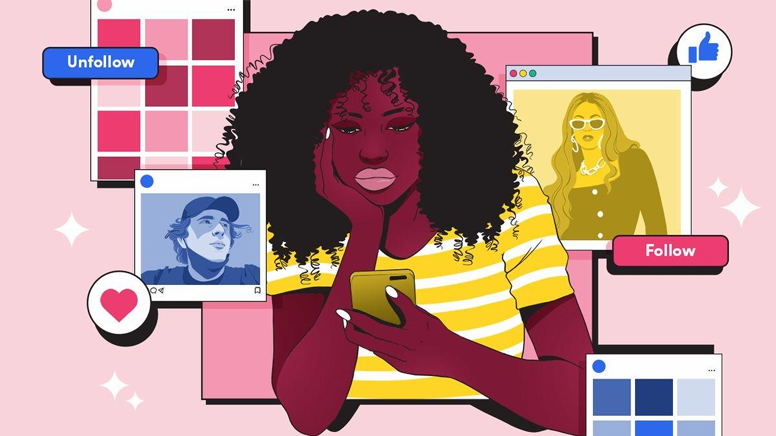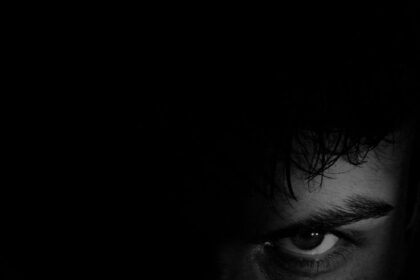As we entered the new year, it could not be more evident that late-stage capitalism shades even the most imperceptible nooks of life. Our most innocent pleasures have become questions of ethical concern. These are parts of life that, if left to remain so, could make us further complicit in destruction with a magnitude never seen before.
As such, we must begin somewhere, and today that somewhere is our idols.
That show you loved? Whose main lead, side characters, and morally ambiguous hottie are all sitting in your Instagram following—marinating in the profits of your consumption? They’re making you complicit in your own downfall. To cut to the chase, the topic being addressed today is a common academic controversy. One that most readers today are accustomed to: Can you separate the art from the artist?
The definitive answer is no, you cannot. Everything is political because whether it is an author, actor, influencer, or singer—they all make more money than you could ever imagine owning yourself, and when their ideologies are a big part of their revenue generation, then we must draw a line.
This article is not about policing you; rather, it is about empathising with this problem, understanding its validity, sitting with its harshness, and, of course, finding action in between the lines. Our consumption is not a sin, neither is pleasure or escapism. It is when we do it at the expense of others that the real problem arises, and even then…how does one withdraw?
In her book, Monster: A Fan’s Dilemma, Claire Dederer talks about the problem in depth. Her book is supposed to encompass an autobiographical account, not of what it means to be a creator of a beloved masterpiece, but of the audience who has been betrayed by this creator. Today, this is an audience that has been given social media’s personal touch that helps them connect to the creator of their favourite media. She says the following about Roman Polanski, the French-Polish film director who turned out to be a paedophile:
“All the films I had seen many times. I expected them to be radically altered by my deeper knowledge of Polanski’s crimes, but that’s not exactly what happened. The knowledge just sort of hovered there.”
Isn’t that true for so many of our beloved idols?
How many of us went through a Taylor Swift heartbreak when the reality of her weaponised feminism descended upon us? Did you not feel the need to pick apart her lyrics and to find the hidden manipulator that betrayed us in them? This problem isn’t simple because it is twofold:
- As Dederer would put it, it’s the problem of loving someone who has done a terrible thing, who continues to endorse terrible things.
- This someone does not know we exist.
The second of this two-fold problem is what we must cling to. What we experience in this dilemma is a one-sided ordeal that primarily, at this moment, affects us only. It only disrupts our lives. The celebrity behind your screen does not care that their pro-Zionist views have altered your ability to see them and their art through that lens. As Dederer puts it:
“The awful thing disrupts the great work; we can’t watch or listen to or read the great work without remembering the awful thing. Flooded with the knowledge of the maker’s monstrousness, we turn away, overcome by disgust. Or…we don’t. We continue watching, separating or trying to separate the artist from the art. Either way: disruption.”

It has been established so far that there is an issue, which, if not on a political level, then at least on a personal level, affects us and our pleasure of indulging in media. Let me establish the other side: no one is perfect.
At one point or another, we have all held harmful biases that we have needed to deconstruct. If humankind could reach a point of stasis, it would be easy to pick out the celebrities that no longer possess the ability to grow. However, human beings are a forever work in progress. The branding of people as good and bad can vary across contexts and last anywhere from seconds to forever. We cannot humanly assess this through a convenient calculator. As even Dederer in her exploration of this problem states:
“I wished someone would invent an online calculator—the user would enter the name of an artist, whereupon the calculator would assess the heinousness of the crime versus the greatness of the art and spit out a verdict: you could or could not consume the work of this artist.”
We do not have a calculator that would fix all our problems like the one discussed above; however, we have another variable in our control. This variable is the degree to which we choose to enjoy the media that we consume. We can enjoy that show/movie/song/book, but must we also follow all those celebrities and their dystopian interviews? Their Met Gala outfits? and love lives?
You need to unfollow that celebrity. Today, right now.
It is a small portion of the actual art you enjoy, one that is unfortunately alive and encroaching on your ability to form healthier connections with the way you consume and enjoy media. Before they disappoint you, know that you cannot disappoint them through these boundaries. Take the first small step, in many, towards becoming not completely, but at least somewhat more ethical.

And read Monster: A Fan’s Dilemma for some interesting insight on this topic to formulate further actionable solutions.
















